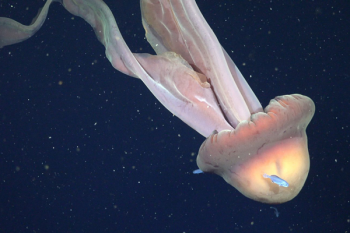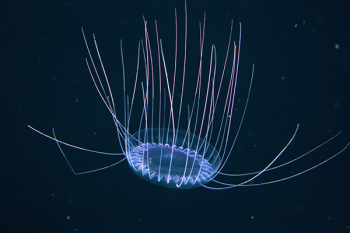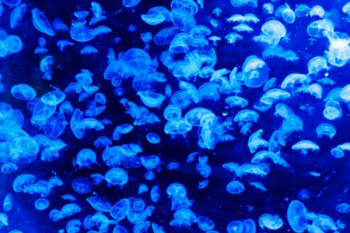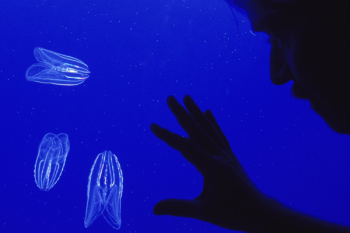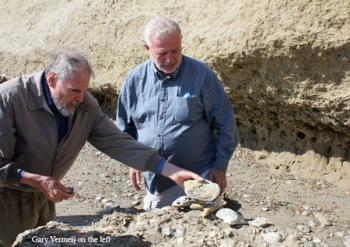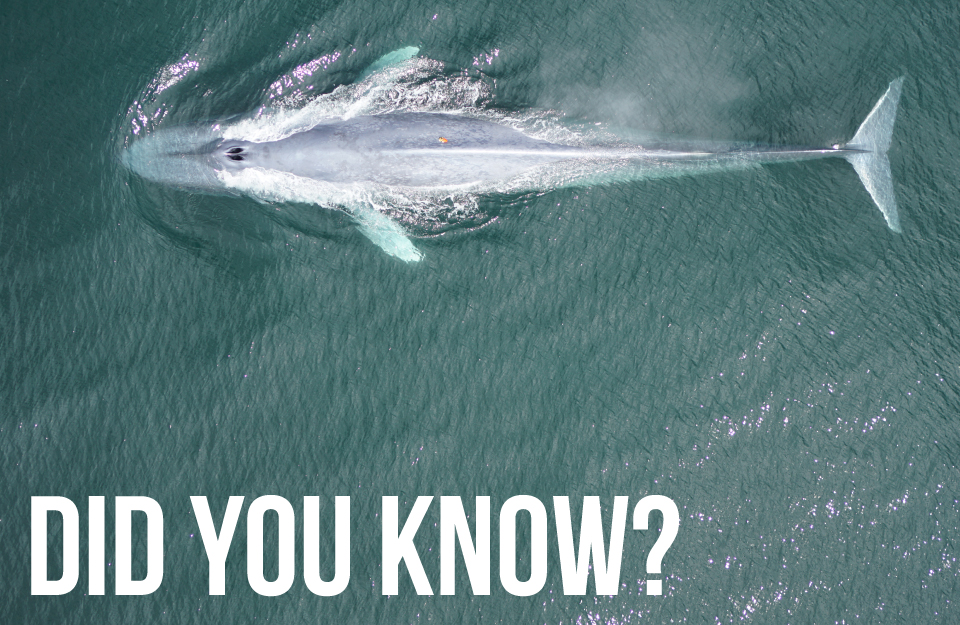
A blue whale with a removable tag surfaces off the coast of California.
The baleen whales, like humpback, blue and fin, consume huge quantities of food. And when they poop, they cycle massive amounts of nutrients back into the ecosystem.
A new study found that the large whales eat and poop far more than previously thought: they consume approximately triple the amount of food previously estimated. Scientists have seriously underestimated the role large whales play in ocean health.
Whale poop fertilizes the ocean near the surface, fueling plant plankton (phytoplankton) blooms that are the base of ocean food webs. These masses of phytoplankton absorb carbon dioxide like trees in forests.
“Our results suggest the contribution of whales to global productivity and carbon removal was probably on par with the forest ecosystems of entire continents, in terms of scale,” said Nicholas Pyenson, Curator of Fossil Marine Mammals at the Smithsonian’s National Museum of Natural History. “….helping whales recover could restore lost ecosystem functioning and provide a natural climate solution.”
